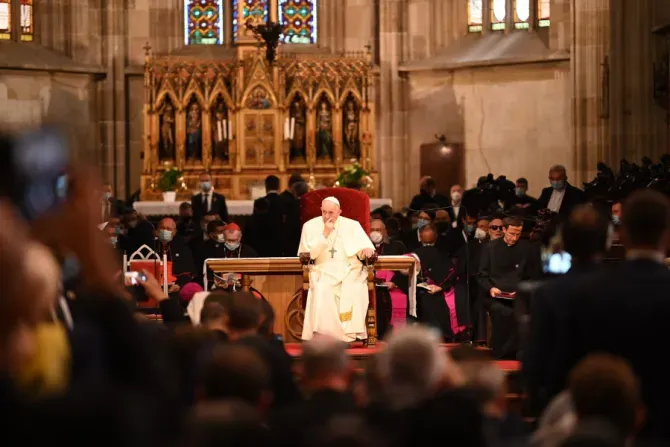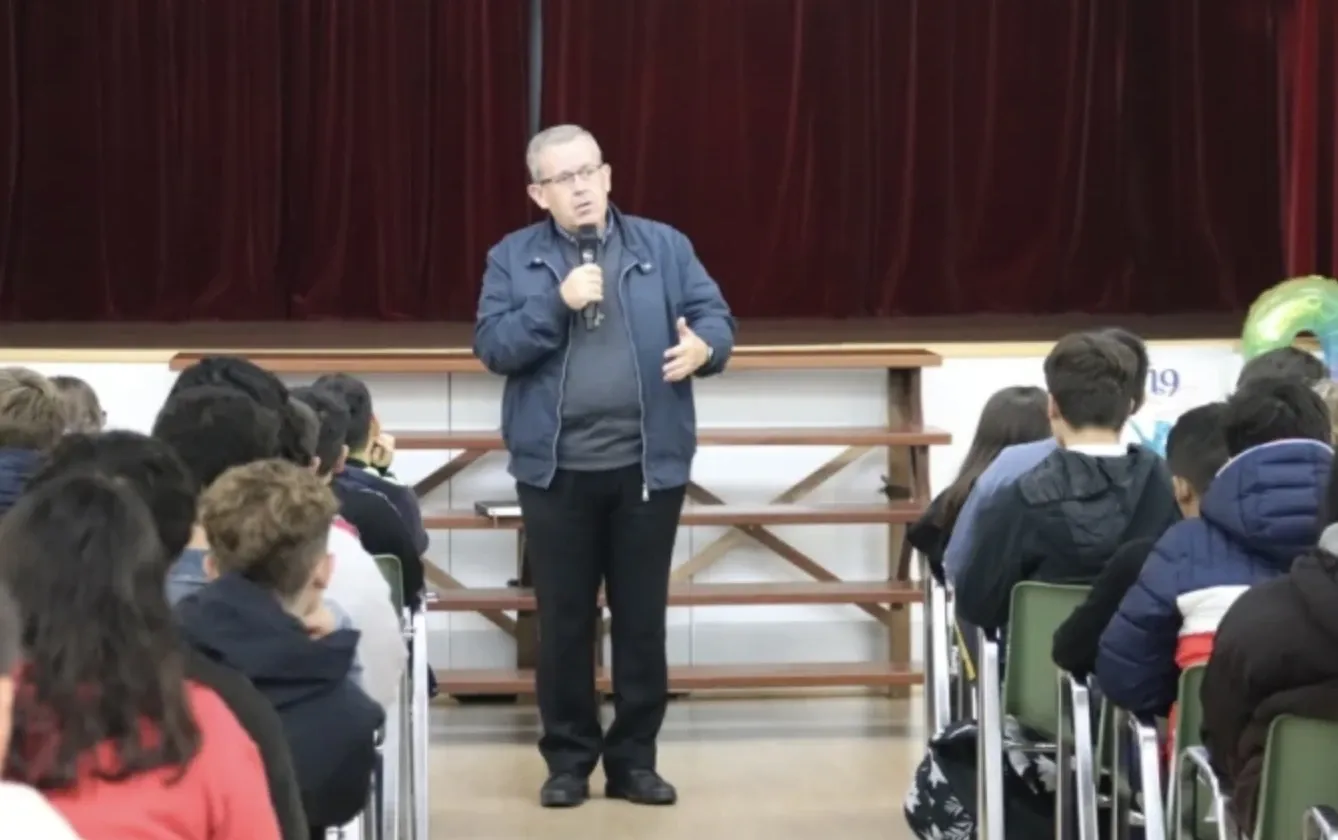He noted that many people were afraid of freedom, saying: “We would rather get along by doing what others -- perhaps the masses, or public opinion, or the things that the media sell us -- decide for us. This should not be. And today so many times we do the things that the media decide for us.”
He recalled the biblical episode in which the Israelites asked if they were better off living in servitude in Egypt, with a guarantee of onions, than wandering exhausted in the desert.
He also referred to the story of the Grand Inquisitor in Dostoevsky’s masterpiece “The Brothers Karamazov,” who rebuked Jesus for giving humans freedom, insisting that what they needed was bread.
He said: “Sometimes in the Church too this idea can take hold. Better to have everything readily defined, laws to be obeyed, security and uniformity, rather than to be responsible Christians and adults who think, consult their conscience and allow themselves to be challenged. That’s the beginning of casuistry, all regulated…”
“In the spiritual and ecclesial life, we can be tempted to seek an ersatz peace that consoles us, rather than the fire of the Gospel that disturbs and transforms us. The safe onions of Egypt prove more comfortable than the uncertainties of the desert.”
(Story continues below)
“Yet a Church that has no room for the adventure of freedom, even in the spiritual life, risks becoming rigid and self-enclosed. Some people may be used to this. But many others -- especially the younger generations -- are not attracted by a faith that leaves them no interior freedom, by a Church in which all are supposed to think alike and blindly obey.”
He continued: “Dear friends, do not be afraid to train people for a mature and free relationship with God. This relationship is important.”
“Perhaps this will give us the impression that we are diminishing our control, power, and authority, yet the Church of Christ does not seek to dominate consciences and occupy spaces, but rather to be a ‘wellspring’ of hope in people’s lives.”
The pope urged bishops and priests to be attentive to their flock’s need for freedom as the country undergoes rapid changes.
“For this reason, I encourage you to help set them free from a rigid religiosity,” he said. “Get out of this, and let them grow free.”
“No one should feel overwhelmed. Everyone should discover the freedom of the Gospel by gradually entering into a relationship with God, confident that they can bring their history and personal hurts into his presence without fear or pretense, without feeling the need to protect their own image.”
“To be able to say: ‘I am a sinner,’ but to say it sincerely, not beat our chests and then continue to believe we are righteous. Freedom.”
“May the proclamation of the Gospel be liberating, never oppressive. And may the Church be a sign of freedom and welcome.”
Pope Francis recalled receiving a letter from a bishop complaining about the pope’s representative in his country.
The letter said: “We were 400 years under the Turks and we suffered. Then 50 under communism and we suffered. But the seven years with this nuncio were worse than the other two.”
The pope commented: “Sometimes I wonder: how many people can say the same about the bishop they have or the parish priest? How many people? No, without freedom, without fatherhood, things don’t work out.”
After reflecting on the need for creativity, Pope Francis appealed to clergy to limit homilies to around 10 minutes -- a point he has made frequently since his election in 2013.
The spontaneous appeal prompted the audience to applaud. When the noise died down, the pope observed that the clapping had begun among a group of nuns, who, he joked, “are victims of our homilies.”
Emphasizing the need for dialogue, the pope referred to an episode in the life of the Slovakian Cardinal Ján Chryzostom Korec, who died in 2015. When he mentioned the cardinal’s name, he drew another strong round of applause.
The pope said: “He was a Jesuit cardinal, persecuted by the [communist] regime, imprisoned, and sentenced to forced labor until he fell ill. When he came to Rome for the Jubilee of the Year 2000, he went to the catacombs and lit a candle for his persecutors, imploring mercy for them.”
“This is the Gospel. This is the Gospel. It grows in life and in history through humble and patient love.”





